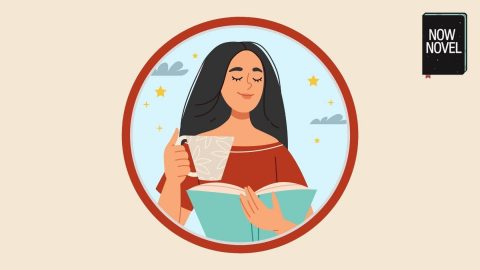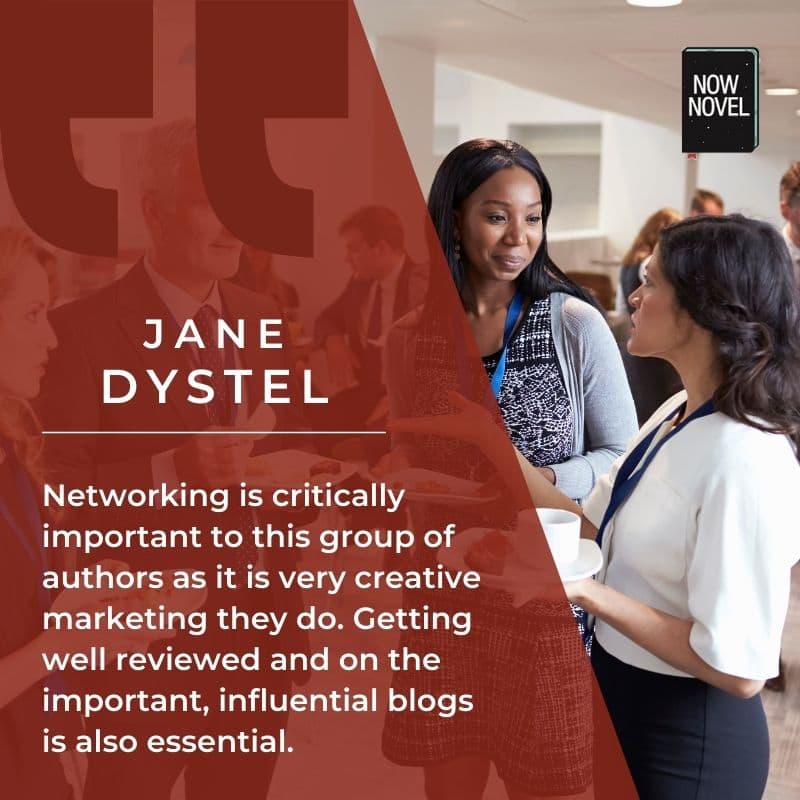Read eight romance writing tips by respected romance authors and agents:
Advice from eight romance writers and agents:
- Learn what makes commercial romance sell
- Persevere and keep writing love stories
- Grow your platform, your way
- Build your tribe of romance writers
- Let your own loves shape genre
- Get to know and care about your characters
- Think about the romantic issues of your era
- Write and rewrite your query letter
Let’s dive in:
1. Learn what makes commercial romance sell
What makes commercial romance sell?
Different romance agents and authors will give different responses.
Nicholas Sparks’ agent (and founder of Park Literary Agency) Theresa Park gives an illuminating answer:
Great commercial fiction simultaneously offers first-rate entertainment and emotional catharsis. Usually plot-driven enough to create a heightened sense of suspense and curiosity (i.e. a page-turner), it also takes the reader on an emotional rollercoaster ride: engagement, euphoria, loss, and redemption / fulfillment; or alternatively, stasis, loss, terror, courage, and triumph. It should make for a transporting experience, even if it’s not always a deeply profound one.
Theresa Park, interviewed by E. I. Johnson for Johnson’s blog, ‘A View From the Top’.
How will you give readers the suspense they need to keep turning pages?
Lovers separated and reunited (such as when Janey and Teacake in Zora Neale Hurston’s Their Eyes were Watching God are separated by a hurricane in the south) is an example of a common romance trope that supplies suspense. It creates the open question of whether lovers (or not-yet-lovers) will meet again.
If you have a romance story idea already, look at the elements Park mentions. What will supply:
- euphoria
- loss
- redemption
- fulfilment
- stasis
- loss
- terror
- courage
- triumph
Think of the above in terms of your main characters’ arcs, but also secondary events in the story that feed into these aspects.
2. Persevere and keep writing love stories
Many describe the querying process as one of the hardest parts of writing. Hearing a ‘no’ sucks. Not hearing back at all from an agent or publisher feels something like being ghosted (minus the prior intimacy).
Nobody ‘cracks the code’ of writing love stories (or any other genre, for that matter) the first time. So many respected authors had first novels that were published posthumously (largely due to appetite created by later works).
Just look at Charlotte Brontë (1816 – 1855), whose Jane Eyre (firmly cemented as a classic of English fiction) has seen countless film adaptations, but whose first novel The Professor was met with a resounding ‘no’:
These manuscripts were perseveringly obtruded upon various publishers for the space of a year and a half; usually, their fate was an ignominious and abrupt dismissal.
Source: annebronte.org
The full article is an interesting read, as it goes on to show how Brontë adapted elements of her ‘unsuccessful’ first novel for her third, Villette.
Get feedback from romance authors
Romance authors who’ve been there before will help you succeed and make true progress.
LEARN MORE
3. Grow your platform, your way
According to Elle Magazine, Colleen Hoover is the third most followed author on Goodreads behind Stephen King and Bill Gates.
In an interesting deep-dive on the romance author’s popularity, Elle shares what makes Hoover a dream for a large publisher. A substantial audience of romance readers and large platform (with over 500,000 followers on TikTok, where Hoover shares posts about Jake Gyllenhaal between book promo posts).
On building her platform, Hoover shared interesting words on the ownership that comes with writing romance and doing indie publishing on your own terms:
I’ve just been doing it [self-publishing] for so long. My sister is an editor and cover designer, so I have people in my family who help with aspects of it. I just really enjoy it. Also, I feel like when I published with a publisher, the successes are theirs, but the failures are mine. That’s just something I feel, or make myself feel. But with self-publishing, all the successes are mine, and all of the failures are mine.
Colleen Hoover, interviewed by Hillel Italie for ABC News
4. Build your tribe of romance writers
Agent Jane Dystel of Dystel, Goderich & Bourret, who signed Colleen Hoover after her ‘word-of-mouth’ success, describes what is essential to romance writers hoping to find publishing success, particularly if going the indie route:
Networking is critically important to this group of authors as it is very creative marketing they do. Getting well reviewed and on the important, influential blogs is also essential.
Jane Dystel, interviewed by Writers & Artists, June 2013
Book tours may be virtual or in person (John Grisham did a twenty-stop podcast tour in 2017). They’re a great way to connect with romance readers and other writers.
You could also join a romance writers’ organization (Now Novel coach Romy Sommer founded the Romance Writers Organisation of South Africa, the benefits of which she discusses in our interview with her in the linked article above).
5. Let your own loves shape genre
As an academic at Arizona State experienced in research, Diana Gabaldon wrote her first novel in the Outlander series (which has now sold over 50 million copies) in stolen snatches between 12 and 4 am.
In an interview by Alison Flood for The Guardian, the author shares how she played to her strengths in writing her hit historical meets fantasy/romance hybrid series:
Gabaldon read everything, voraciously – she didn’t have a particular genre she was drawn to. So she decided that she might as well put her academic research skills to use in writing historical fiction. “Also, if I turned out not to have an imagination, I could steal things from the historical record.”
Diana Gabaldon, quoted by Alison Flood in ‘Outlander author Diana Gabaldon: ‘I needed Scotsmen because of the kilt factor’, 23 November 2021
Romance doesn’t have to be kitchen sink, ‘realist’ drama (though it absolutely can be if that’s your favorite kind). It can be time travel and the ‘kilt factor’, as Gabaldon calls it, too.
Playing to your own strengths, interests and passions allows some of this passion to shine through your own story.
6. Get to know and care about your characters
Because romance is a character-driven genre, where desire and interpersonal dynamics supply the core tension, it is important to know your characters well.
Multi-genre author Nora Roberts (who started out in romance but later branched into crime-romance and dystopian) talks about the purpose of the discovery draft for getting to know your characters in this brief interview clip (from 11:35):
So the discovery draft can simply be the process of getting to know your characters well. Remember to rewrite.
7. Think about the romance issues of your era
Gender dynamics and other aspects of human experience such as racism or sexual orientation may have significant effects on who has power in a relationship. Whose relationships are celebrated by society in a specific place and time (versus whose are shunned or even outlawed).
These politicized aspects of romance are important to remember. For example, if you were writing romance set in a time before women’s suffrage, it would be very strange if a female MC had more rights than were actually afforded to most women of her class or position at the time and this difference was not explained in the story.
This political aspect and other topical issues in romance were interesting talking points when Julia Quinn, author of the Bridgerton series that was adapted for Netflix by Shonda Rhimes, appeared on Tamron Hall. When the issue of consent in a specific scene came up, Quinn said:
When the book came out, over 20 years ago, there wasn’t a peep about that scene. Nobody said a word, the reaction was more, ‘You go, girl!’ … The Me Too movement and just general awareness has honed our awareness of what consent is, and that’s a good thing.
Julia Quinn, interviewed by Tamron Hall, Jan 2021.
8. Write and rewrite your query letter
Romance author Nicholas Sparks is perhaps most famous for his book that inspired the successful film adaptation, The Notebook. Each of the author’s titles has been a NYT bestseller.
In a section under ‘Advice to Writers’ on the author’s personal website, Sparks shares his best advice on how to get your romance book published:
The odds are tough, but not impossible, and that’s why I believe that a good query letter is the single most important page that any unknown, unpublished author will ever write.
I worked hard on mine—17 drafts over two weeks and I did my best to make sure every word counted. A good letter will include: previous writing and publishing experience, a brief overview of the novel, other novels that it is similar to but why your novel is different [comp titles], the reasons you want to work with this particular agent, the market for the novel, and a request to have the manuscript read.
Nicholas Sparks, ‘My Experience, Part 1: The Story of How I Found An Agent’, full series available here.
We have a practical guide on how to write a query letter here, and Now Novel coach Romy Sommer ran a helpful webinar on querying that is available to subscribers via the ‘Courses’ section of the site.
Need help finishing or polishing your romance manuscript? Meet a writing coach who knows your genre inside out.
I got exactly what I wanted from NowNovel’s Coaching+ program, which was a mentorship with a traditionally published romance author. Romy Sommer was both critical and supportive. She made excellent suggestions to my outline, and also helped me realize -why- I’d made some of my choices, which has helped me execute them. — Travis





2 replies on “Writing romance: Advice from 8 authors and agents”
A key point I learned from this post is that you never know when a book of yours will hit the jackpot.
True, Todd. Though to extend the metaphor, that’s why it’s best for it not to be a gamble and do things like market research, find useful comp titles to reference and differentiate from, and go the indie or small publisher route if the big pub houses aren’t taking notice. Thanks for sharing the takeaways you found.